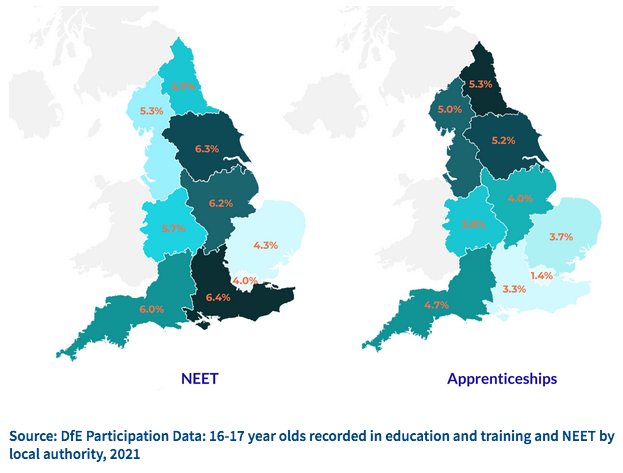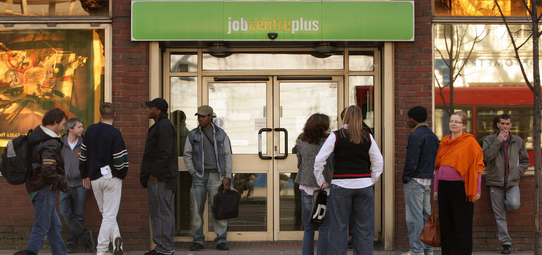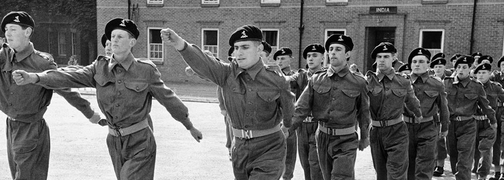Over the hills and far away: lose your benefits but there's always the Kings Shilling

Chancellor Rachel Reeves' recent Spring Statement introduced welfare reforms that will significantly affect unemployed young people in the UK.
In her recent Spring Statement, Chancellor Rachel Reeves ran a scythe through the welfare state, already cut to the quick. She announced a series of welfare reforms aimed at reducing government expenditure by approximately £4.8 billion annually. The Resolution Foundation warns that these cuts could lead to a 'recession level' decline in living standards for Britain's poorer families, potentially reducing disposable incomes by an average of 3%, or £500, over five years. The Guardian+12Sky News+12The Sun+12Financial Times+1Wikipedia+1
An impact assessment by the government indicates that millions of families may lose an average of £1,720 per year due to these welfare reductions. Critics argue that these cuts could exacerbate poverty and hardship among vulnerable populations. However, Chancellor Reeves says with a straight face that the reforms are necessary to address fiscal challenges and asserts that they will not push people into hardship. Yahoo News UKThe Standard
A key component is the 'youth guarantee' scheme, targeting individuals aged 18 to 21 who are not in employment, education, or training (NEET). No one would object to something being done for these young people who clearly have slipped through the net. They tend to be from the poorest families in the most challenging areas, and by definition, most have learning dificulties. This initiative aims to provide guaranteed access to training, apprenticeships, or job search assistance. There's a stick with this carrot though: young individuals who repeatedly decline these opportunities will have their benefits stopped. The government's objective is to decrease youth unemployment and ensure active engagement in skill development or employment among young people. The Boar+1The Independent+1

As part of this initiative, the government is targeting young people aged 18-21 year old NEETs by encouraging them to join the military. This kind of initiative is often framed as a way to provide structure, skills, and career opportunities for young people who might otherwise struggle to find stable employment or training. However, such policies are controversial. Supporters argue that military service can offer discipline, education, and job training, while critics may see it as a coercive measure that limits young people’s choices, especially if alternatives like apprenticeships, college funding, or other job programs are not as well-promoted or accessible.
As of January 1, 2025, the British Army comprises approximately 73,847 regular full-time personnel, 4,127 Gurkhas, 25,742 volunteer reserve personnel, and 4,697 other personnel, totaling 108,413 individuals. Full Fact+2Wikipedia+2GOV.UK+2GOV.UK
Prime Minister Sir Keir Starmer has committed to increasing the UK's defense spending to 2.5% of GDP by 2027. While this financial commitment indicates an intention to bolster the UK's military capabilities, specific plans regarding changes to the size of the British Army have not been detailed. However, in July 2024, Sir Keir announced a review of the nation's readiness to address future conflicts, which include considerations for increasing the size of the Armed Forces. LBC+4Yahoo News UK+4Latest news & breaking headlines+4The Telegraph
It appears that the Labour Party has abandoned its historic commitment to economic justice in favour of militarism, reducing itself to little more than a recruitment office for the British Army by pushing the young unemployed into military service. As benefit cuts, austerity, and soaring living costs that are a political choice of the Government continue to devastate working-class communities, Starmer is cynically positioning the armed forces as the only viable escape route, mirroring the disgraceful U.S. ‘poverty draft.’ His rhetoric and policy trajectory make it clear that his goal isn’t genuine patriotism or national security, but rather the expansion of the military through economic coercion at a time when the military may be needed in Eastern Europe. It is national service for the poor and yet, the British Army itself is unlikely to thank the government for this exploitation. Britain already has a successful though underutilised military apprenticeships scheme and the young people that take this root view it as a career path and actually want to be there. This is the key difference. As a soldier, if you were in a tough spot, would you really want someone who has no real interest in being there covering your back?

In 1966, the U.S. Department of Defense launched 'Project 100,000' to address troop shortages during the Vietnam War. By lowering educational and physical standards, the program funneled economically disadvantaged young men, disproportionately Black and Latino, into military service under the pretense of offering them 'opportunity.' Instead, these undertrained soldiers were sent into some of the most dangerous combat zones, suffering double the casualty rates of their better-prepared peers. For many survivors, military service failed to provide stable post-war employment. The so-called 'skills training' was often meaningless outside the battlefield, leaving veterans in the same poverty they had enlisted to escape, now with the added burden of physical and psychological trauma. Far from a noble social program, 'Project 100,000' was a callous exploitation of the working class to fuel an imperialist war machine.
History shows that when the state guts social safety nets while expanding the military, working-class people are left with few choices: starve or serve. Under the Tories, austerity has ravaged public services, but rather than reversing this, Starmer’s Labour appears intent on maintaining a system where economic hardship funnels people into the armed forces. Despite existing recruitment struggles, the Ministry of Defence aims to increase troop numbers, as part of its 'future soldier' initiative with Starmer offering enthusiastic support (MoD Report, 2023). By conveniently coinciding with benefit cuts that disproportionately impact young people, particularly in areas of high unemployment there will inevitably be a direct correlation between economic deprivation and military enlistment, as the promise of a stable income lures those abandoned by the state (ForcesWatch Report, 2022). The government’s own data indicates that recruitment is highest in regions suffering from chronic poverty, further proving that the military preys on economic hardship (UK Armed Forces Recruitment Statistics, 2023).

Labour should be offering young people real opportunities, identifying those hard to reach early in the education system so they don't become NEETS in the first place, investment in green jobs, education, and infrastructure - not shoving them into a military career that may leave them traumatised, underpaid, and abandoned. If Starmer truly cared about national security, he would focus on ensuring economic security first, rather than setting up the most vulnerable as cannon fodder. Instead, his policies pave the way for a modern version of the US poverty draft. By refusing to challenge austerity while cheerleading military expansion, Starmer is making it clear, the working class will fight his wars while the elite continue to profit.
'Project 100,000' proved that military service does not solve poverty, it exploits it. If Starmer’s Labour continues on this path, it will solidify its transformation into a pro-war party of the establishment, continuing to betray the very people it was founded to protect. A true progressive movement would invest in public services, housing, and secure civilian jobs, ensuring that no one has to enlist out of economic desperation. Starmer’s vision, however, leaves little room for such a future, just a bleak choice between poverty or being shot at on some distant field.
In the last Tory manifesto, former PM Rishi Sunak's proposal to reintroduce a form of national service was met with skepticism, as the UK previously moved away from conscription for a reason.

Between the end of World War II in 1945 and the official end of National Service in the UK in 1963, approximately 395,000 men were conscripted into the armed forces. During this period, an estimated 2,000 National Servicemen lost their lives while on duty. Many of these deaths occurred during the conflicts marking the closure of Empire and the Korean War.
Any senior military personnel will tell you that professional, voluntary armed forces tend to be more effective, and forcing young people into military or civilian service has logistical and ethical challenges. The Labour Party formulating developing an official policy linking welfare restrictions to military service would be a significant and controversial policy shift.
Britain needs a strong and professional standing army, with motivated men and women who want to be there. Especially with the threat from Russia and possibly even the US. Probably about 50,000 more than its current numbers. It will not achieve that by drafting the poor and the vulnerable who on the whole, will not want to be there, will be unmotivated, disruptive and aiability to our forces rather than an asset.

